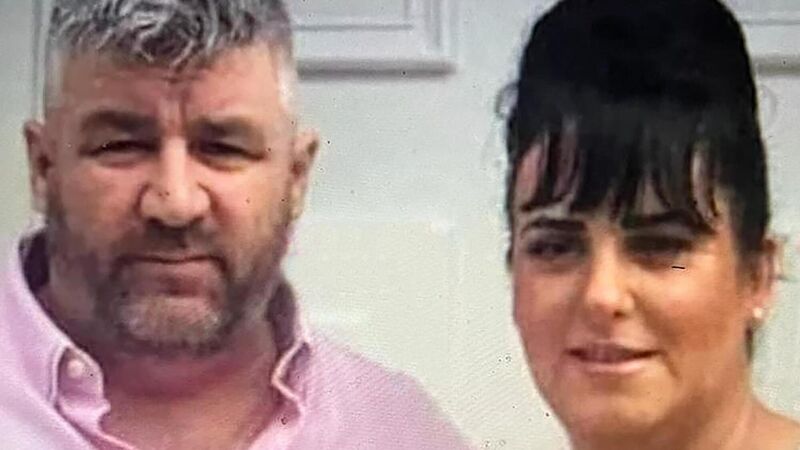Kerry murder trial hears victim died from sharp force injuries and cardiac arrest

Thomas Dooley, left, and his wife, Siobhan.
The 43-year-old father of seven who was attacked while attending a funeral in Tralee lost his life as a result of sharp force injuries, blood loss, and cardiac arrest, the pathologist told the murder trial on Wednesday.
Five men and a teenager deny murdering 43-year-old Tom Dooley from Hazelwood Drive, Killarney, at New Rath Cemetery, Rathass, Tralee, on October 5, 2022.











